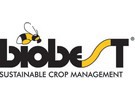“We recommend growers distribute around ten sticky traps per hectare at the beginning of the cultivation process”, says John van Eijk, crop protection specialist at Biobest Nederland. Many pepper growers choose to change the traps at the start of the crop, after the cleanup spray programme when the pest populations have been knocked right back. Traps should ideally be hung immediately above the crop.
“Yellow traps are generally used as the colour attracts whitefly and thrips as well as leafminers and fungus gnats. However, if the key pest target is thrips we recommend using blue sticky traps as they are the most effective at attracting this pest.”
Consequential scouting
He goes on to stress the importance of continuing to scout in the crop. “The combination of scouting and traps is the most effective way to monitor. I have noticed a growing trend in the number of ornamental producers routinely scouting and changing traps every two weeks. The pests are counted and recorded in an Excel sheet. This enables the production team to follow pest developments closely and take prompt action, such as introducing beneficials at the correct time and rate, or using a corrective plant protection product.”
Whitefly control with sticky rolls
The main goal of the yellow and blue traps is to highlight pests in time. In addition, rolls of sticky plastic tape, Bug-Scan, can be used to catch pests in crops, such as tomato grown under artificial lighting.
“During winter months many growers struggle to maintain the right level of beneficials in the crop”, says Van Eijk. “Keen to prevent chemical interventions, sticky rolls can be a highly effective method to control whitefly. To aid and simplify hanging the rolls, Biobest offers two different systems; plastic clips and tape brackets.”
Biobest’s sticky rolls and tape
Bug-Scan is made from recyclable plastic and is provided with glue on both sides. These traps are available in yellow, blue, black and red and in four widths - 5, 10, 15 and 30cm.
The range also includes Bug-Scan Dry − a dry-glue sticky trap made of user-friendly, hot-melt type glue. In addition, there is the Bug-Scan IVOG-System - a 20 x 40cm trap that can be divided in eight equal pieces making it particularly useful in pot plant crops.
 Biobest Belgium NV
Biobest Belgium NV